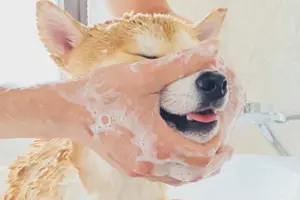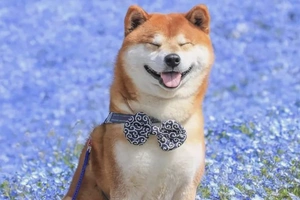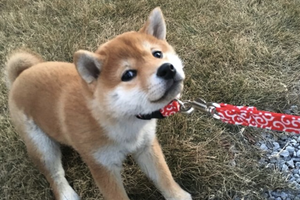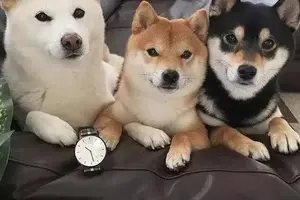
As pet owners, we want our furry friends to live long, healthy, and happy lives. However, understanding the average lifespan of our pets is important for managing their health and planning for their future. In this article, we’ll take a closer look at the lifespan of Shiba Inus, a popular breed known for their loyalty and intelligence. We’ll explore the factors that can impact their lifespan, signs of aging to look out for, and tips for helping your Shiba Inu age gracefully. So, let’s dive in and learn more about Shiba Inu lifespan.
Factors that Affect Shiba Inu Lifespan
There are several factors that can impact a Shiba Inu’s lifespan. Genetics, for example, plays a significant role in determining how long your furry friend will live. Other factors that can impact lifespan include diet, exercise, and medical care. Shiba Inus that receive proper nutrition, regular exercise, and routine veterinary care are more likely to live longer and healthier lives. Additionally, managing and preventing health issues, such as dental problems and arthritis, can also help extend your Shiba Inu’s lifespan. Understanding these factors and taking steps to ensure your furry friend’s health and wellness can help them live a long and happy life.
Average Shiba Inu Lifespan
On average, Shiba Inus live to be around 12 to 15 years old. However, some may live longer or shorter depending on various factors such as lifestyle, genetics, and medical care. It’s important to note that while this is the average lifespan, some Shiba Inus may live well into their late teens or early twenties with proper care and management of any health issues that may arise. Understanding the typical lifespan of a Shiba Inu can help pet owners plan for their furry friend’s future and ensure they receive the care they need as they age.
Signs of Aging in Shiba Inus
As Shiba Inus age, they may experience physical and behavioral changes. Some common signs of aging in Shiba Inus include:
- Decreased mobility and activity levels
- Changes in appetite or weight
- Joint stiffness or pain
- Changes in vision or hearing
- Increased sleep or lethargy
- Changes in behavior or temperament
It’s important for pet owners to be aware of these signs and to seek veterinary care if they notice any significant changes in their furry friend’s health or behavior. Regular check-ups with a veterinarian can help manage and prevent age-related health issues and ensure your Shiba Inu is aging gracefully.
Tips for Helping Your Shiba Inu Age Gracefully
While we can’t stop the aging process, there are several steps pet owners can take to help their Shiba Inu age gracefully and live a happy and healthy life. Here are some tips for helping your furry friend age well:
- Provide a healthy and balanced diet
- Ensure regular exercise and playtime
- Take your Shiba Inu to regular veterinary check-ups
- Provide mental stimulation through toys and games
- Manage and prevent age-related health issues such as dental problems and arthritis
- Provide a comfortable and safe living space
- Monitor your Shiba Inu’s behavior and health for any changes
By following these tips and being proactive in your Shiba Inu’s care, you can help them age gracefully and enjoy their golden years to the fullest.
Common Health Issues in Aging Shiba Inus
As Shiba Inus age, they may be more prone to certain health issues. Some common health problems that can arise in aging Shiba Inus include:
-
Dental problems such as gum disease and tooth decay
-
Arthritis and joint pain
-
Eye and ear problems
-
Skin and coat issues
-
Digestive problems
It’s important for pet owners to be aware of these potential health issues and to seek veterinary care if they notice any symptoms. Regular check-ups with a veterinarian can help manage and prevent these age-related health problems, allowing your furry friend to age gracefully and comfortably. Additionally, providing a healthy and nutritious diet, regular exercise, and mental stimulation can also help prevent and manage age-related health issues.
End of Life Care for Shiba Inus
As our furry friends age, it’s important to prepare for end-of-life care. This can be a difficult and emotional time for pet owners, but it’s important to provide comfort and support for your Shiba Inu during this time. Here are some tips for end-of-life care for Shiba Inus:
-
Provide a comfortable and safe living space
-
Offer pain management and medication as needed
-
Provide mental and emotional support through affection and comfort
-
Consider hospice or palliative care options
-
Consult with a veterinarian for guidance and support
Making the decision to say goodbye to your furry friend is never easy, but providing comfort and care during this time can help ensure they have a peaceful and dignified passing. It’s important to remember the love and joy that our pets bring into our lives and to cherish the memories we’ve shared with them.
Understanding the lifespan of your Shiba Inu and taking steps to ensure their health and wellness as they age is crucial for helping them age gracefully. Factors such as genetics, diet, exercise, and medical care can all impact your furry friend’s lifespan. By providing proper care and attention, you can help your Shiba Inu live a happy and healthy life. Remember to stay aware of any signs of aging and to seek veterinary care as needed. Cherish the memories you share with your furry friend and provide them with the love and care they deserve as they age.





